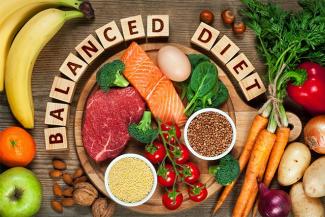
We come across various news and stories about what to and what not to eat during lymphoma. Beware of all statements that claim certain food or diets can cure Cancer. Here are a few myths and common questions people have about diet and lymphoma.
1. Is it safe to eat grapefruits?
2. Can green tea help fight lymphoma?
Green tea is known to have anti-oxidant and immunity boosting properties. University of Maryland says that the phytochemicals found in green tea can aid in starving the cancer cells so that they die. For this purpose, 250-500mg of green tea extract daily is recommended.
However, in 2009, researchers reported that for some medications, this herbal remedy may not be beneficial! They found that when paired with a drug called Bortezomib, green tea shut down the drug’s anti-cancer activity. So please consult your doctor before starting on any green tea.
3. Is it permissible to drink alcohol while undergoing treatment?
Alcohol is known to interact with most medications and reduce their effectiveness. It is generally not recommended to have alcoholic drinks while on treatment for lymphoma. Please check with your doctor if you have problems staying away from alcohol.
4. What supplements do I need to take?
If you are able to eat a complete balanced diet, no supplements or vitamins may be required. If you suffer from anemia, or have trouble eating, speak to your doctor/dietician about nutritional supplements.
5. Will sugary foods affect my lymphoma?
Eating more or less sugar is not proven to affect cancer cells in any way. If you are weak and losing weight, sugar may be a good source of energy and can help gain some weight. Or else, best to have sugar and sugary foods in moderation as excess consumption can lead to other health risks such as obesity, etc.
6. Should I only consume organic foods?
There has been no research based evidence to support that eating organic foods can prevent cancer or aid in cancer treatment.
7. What foods do I avoid if my immunity is low?
If your immunity is low or you are immunosuppressed, you may have a condition called neutropenia or deficiency of neutrophils (a type of white blood cell). For such a condition, a Neutropenic diet is advisable. Please see our article on Food guidelines for immunosuppressed cancer patients for more details on such a diet. The article outlines food safety and infection prevention tips for patients with lowered immunity.
8. Can I eat outside food?
Generally speaking, it is best to stick to homemade meals and avoid outside food whenever possible. If you must eat outside, follow the food safety guidelines in the article called Food guidelines for cancer patients with weakened immunity.
9. After my lymphoma treatment is complete, can I eat everything?
You are free to eat everything once all treatment is over, however maintaining a nutritious diet regime would be helpful. A well balanced healthy diet can aid in faster recovery, increasing energy and stamina levels, preventing infections and reducing risk for other health problems and even cancer.
References:
https://www.lymphomas.org.uk/about-lymphoma/living-with-lymphoma/diet-and-nutrition
https://www.cancer.gov/about-cancer/causes-prevention/risk/myths
https://www.sciencenews.org/blog/science-public/cancer-fighting-green-tea-may-have-dark-side






